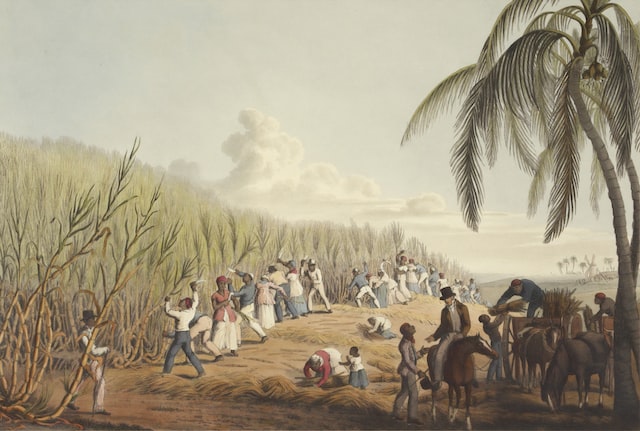
Our Earth is going through climate change, but what is not often talked about is the connection between colonialism and climate change. It is important to understand this connection in order to create a more sustainable future for everyone.
The History of Colonialism
Colonialism is a long and complicated one, but there are some key points that are important to understand when considering the connection between colonialism and climate change.
First, colonialism is not a single event or period in history, but it is a process that has been going on for centuries.
Second, it has a profound impact on the environment. Both in terms of the resources that have been extracted from colonized countries and the way in which those countries have been governed.
Third, the legacies of colonialism continue to shape the world today. Including the way in which countries respond to climate change.
When we consider the history of colonialism, then, we must remember that it is not just a single event or period, but rather a long-running process with far-reaching consequences. To know about this process it is essential to understand the connection between both.
You May Like: What is Extended Producer Responsibility (EPR)?
The Impact of Colonialism on the Environment
Colonialism has had a profound impact on the environment. The process of clearing land for settlements and resource extraction has led to deforestation and habitat loss. While the introduction of new plants and animals has altered local ecosystems. In addition, the use of resources such as water and soil has often been unsustainable, leading to degradation and pollution.
The majority of global climate efforts have been on mitigation. For example, the recent commitments by the United States to reduce greenhouse gas emissions by 50% to 52% below 2005 levels by 2030 are more aggressive than earlier commitments but still fall short. Climate adaptation, which focuses on adapting to already anticipated changes, has not received the same level of intellectual or financial commitment as mitigation. The need for climate adaptation arises from a collective failure of global leadership to combat climate change thus far, as seen by carbon dioxide emissions exceeding 420 parts per million in April. Major global institutions like the WHO, the Global Center on Adaptation, and the United Nations Environment Programme have all emphasized the vital necessity and moral obligation for climate adaptation action ahead of COP26.
Climate adaptation is very important in Indigenous communities. It is vital to include indigenous populations in the creation of equitable climate adaptation policies, as some solutions, such as the removal of entire communities, may amount to environmental genocide. However, climate policy has long disregarded Indigenous groups, despite the fact that Indigenous communities Worldwide have been among the hardest hit by global warming.
The impact of colonialism on the environment has been especially evident in tropical countries, where rainforests have been cleared for plantations and grazing land, and where rivers have been dammed for hydroelectric power. The result has been a loss of biodiversity, as well as increased greenhouse gas emissions from deforestation and soil degradation.
The link between colonialism and climate change is clear. Colonialism has contributed to environmental degradation, which has contributed to climate change. As we continue to face the consequences of climate change, it is important to remember the role that colonialism has played in causing this crisis.
The Connection Between Colonialism and Climate Change
There is a growing body of evidence that suggests a strong connection between colonialism and climate change. Studies have shown that countries that were formerly colonized are more likely to experience higher levels of climate change-related impacts. Such as increased temperatures and more extreme weather events.
One theory is that this is due to the fact that colonized countries tend to be located in tropical or subtropical regions, which are particularly vulnerable to the effects of climate change. Another theory is that colonial powers extracted natural resources from these countries at an unsustainable rate. Leaving them with fewer resources to cope with the impacts of climate change.
There are so many examples of colonialism destroying humans and nature including:
- French colonists forced Mandja people in French Equatorial Africa — modern-day Chad, Central African Republic, Republic of the Congo, Gabon — into cotton plantations and prohibited their subsistence way of life through hunting;
- The British commercialization of agriculture and the Bengal famine in India;
- German genocide in Tanganyika’s local communities (modern-day Tanzania) and
- Spanish colonialism in Mexico.
The Way Forward
It is clear that the world is facing an unprecedented crisis in terms of climate change. The science is unequivocal and the impacts are already being felt by communities across the globe. Climate change is a reality and it is happening right now.
The way forward must involve an honest and open acknowledgement of the role that colonialism has played in causing climate change. For too long, the conversation about climate change has been dominated by those who seek to downplay or deny the role of human activity in causing it. This needs to change.
We must also recognise that the way forward will not be easy. It will require a fundamental shift in the way we think about the world and our place in it. But a shift is essential if we are to avert disaster and create a more just and sustainable future for all.
Conclusion
It is clear that colonialism and climate change are interconnected. The exploitation of natural resources by colonial powers led to environmental degradation, which contributed to climate change. Today, the countries that were formerly colonized are among the most vulnerable to the effects of climate change, while the countries that benefited from colonization are among the least affected.
Image Source: British Library
Read Next Blog:
What is Decarbonization and Why It Is Important?







